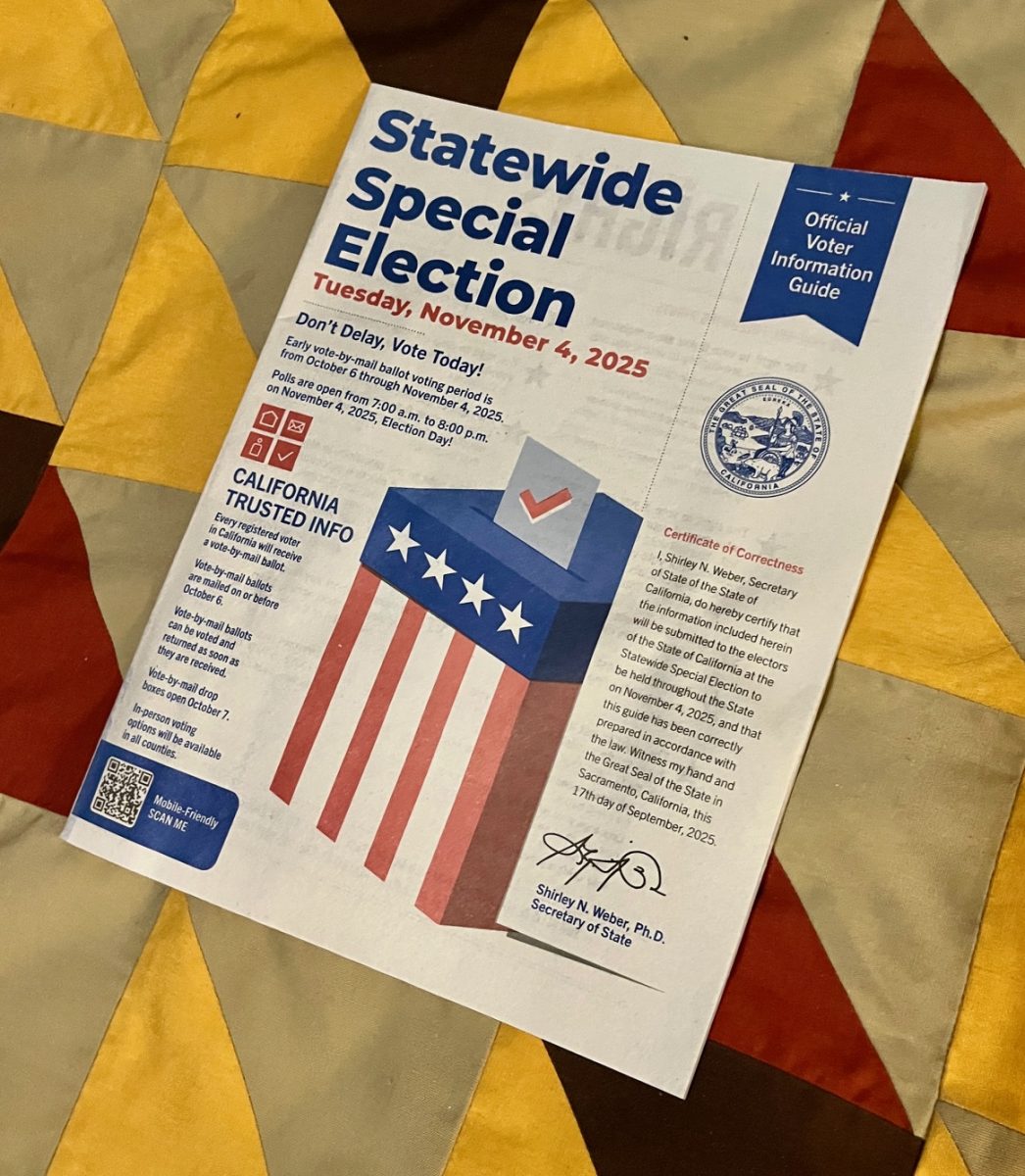Proposition 50 – Everything You Need to Know About the Special Election This November – Grace Mathis ‘26
You may have heard about Proposition 50–a proposition created by California Governor Gavin Newsom–that calls for a special election this November 4th. You may not know much about it, or think it’s unimportant, but if you’re unhappy with the state of our federal government, this proposition could have a significant impact. So, if you’re going to be eighteen by November 4th and are registered to vote, here’s some key information to know about Prop 50 to help you decide how to cast your vote next month.
What would Prop. 50 Do?
Essentially, Prop. 50, if passed, would redraw our congressional map in California. The new map would strategically group more Democrats with swing districts, making it easier for Democratic representatives to stay in power. It’s estimated that about five of California’s representative seats, which Republicans currently hold, would be turned over to Democrats. Five seats may not sound like a lot, but in reality, the GOP (the Republican Party) narrowly holds control of the House of Representatives, with a majority of 219 compared to the Democrats’ 213. With these five seats secured, combined with the mid-term elections in 2026 (historically, midterms tend to go badly for the President’s party), the House would almost undoubtedly turn blue. With the Republican Party holding Congress, the Supreme Court, and the presidential position (along with the cabinet), even controlling one of the two chambers of Congress would give an advantage to Democrats and allow the party more say in government proceedings.
Why the special election?
So why is there a special election? Although controversial, redistricting – the action or process of dividing or organizing an area into new political districts – is not illegal in the United States. In fact, states such as Texas have created similar maps favoring the republican party since the 2000s. Although it should be noted that such maps have been challenged in courts, as they rely on race, directly violating Section Two of the Voting Rights Act, it nonetheless begs the question: why does California need to vote on whether this new map can be made if others are able to do so without pause? Unlike Texas, California has it written in law that congressional maps must be drawn up by an independent committee. The committee, formed in 2008 and given power to draw up Congressional districts in 2014, is currently comprised of five republicans, five democrats, and five independents. If passed, this law requiring an independent committee would be replaced by a democratic committee. It is important to note that, as all electoral maps are redrawn every ten years, the new maps that could potentially be drawn would only hold jurisdiction until 2030, when the next maps would be drawn by the independent committee.

California (2024) Map Versus Predicted Texas map (2002, prior to 2003
Map Under Prop 50 (2024) (California Prop 50) redistricting) Versus Texas (2024) Map (2002 Texas HOR) (2024 presidential election)
Why support it? – Proponents Argument
Proponents of this proposition believe that the federal government is already heavily Republican-influenced, what with the GOP currently holding all three branches of government (executive, legislative, and judicial). With midterm elections for the House coming up in 2026, President Donald Trump has openly pushed for Texas Governor Greg Abbott to redistrict his state in order to regain five seats. Prop. 50 would counteract this plan by providing democrats in California with five additional seats through redistricting. Although gerrymandering is not the most morally permissible concept, it is a necessary evil in order to preserve the balance of power.
Why be against it?- Opponents Argument
Opponents of this proposition believe that gerrymandering–the process of manipulating an electoral district’s boundaries to favor one party/class–is always inherently wrong. It gives more power to politicians and takes representation from the people. Prop. 50 eliminates safeguards put in place to ensure fair elections, elections which do not pander to any one political party. Although the direct effects of this proposition would only be temporary and replaced in 2030, it is still a clear affront to democracy. No matter your political leaning, as Americans, our aim should be to foster a government that represents the people. Even if other states are partaking in similar redistricting, as Californians, we should focus on keeping our state a safe ground for democracy.
The results of this election will have long-lasting effects on who holds power in this country. No matter your political stance, citizens’ ability to play a part in our country’s democracy is a unique and notable freedom in the United States. By taking part in such elections, voters actively help to write the legacy of our nation.
Aren’t eighteen but want to pre-register? If you’re sixteen or older, pre-register to vote here!







